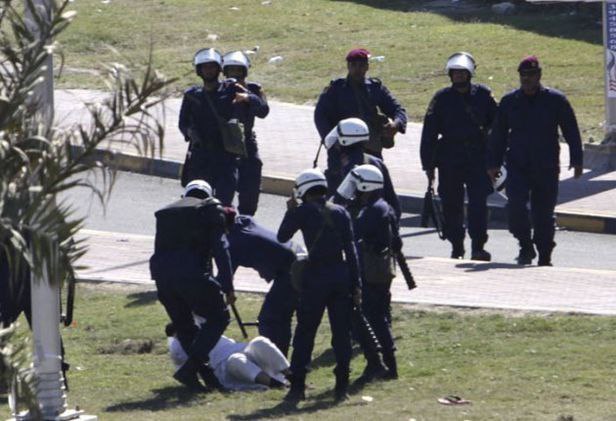|

Bahrain and the Security State Model: Post-2011 Implications By the site editor The transformations Bahrain has witnessed since 2011 were not a mere circumstantial response to the wave of protests that swept the region. They represented a defining turning point in shaping a complex and intertwined security state model. This model has not only reinforced security and repressive apparatuses but has also evolved into a comprehensive system that restructures the relationship between the citizen and the state. It has redefined the notions of security and loyalty through a long record of suppressing fundamental rights and freedoms. Legal and Institutional Foundations: The “Insurance” Framework The construction of the security state did not occur in a vacuum. It was based on laws and institutions that granted it a façade of legitimacy. Legislation such as the “Law on Protecting Society from Terrorist Acts”, and decisions to dissolve political societies by exploiting loopholes in the Political Societies Law, including the dissolution of Al-Wefaq National Islamic Society, Wa’ad, and Amal, along with the confiscation of funds and property, were not merely punitive measures. They were tools to re-engineer the public landscape. These laws that were supposedly designed to combat terrorism, were transformed into mechanisms for criminalizing peaceful opposition and shrinking public space. Meanwhile, the military and security institutions witnessed an unprecedented expansion in their powers and budgets, extending their influence deep into civilian sectors. This blurred the traditional line separating military and civil institutions. Securing Society: From Citizen to Symbol At the heart of this model, the concept of security shifted from one centered on the stability of society as a whole to one focused on personal loyalty to the government. The “secure citizen” was no longer someone living in a stable community, but someone who demonstrates loyalty through silence or support.
This shift produced what can be called the securitization of society, where mere political suspicion became enough to stigmatize individuals, families, and entire communities. The result was an atmosphere of self-censorship and fear. Within this framework, arrests and prosecutions no longer targeted only activists; they became messages to everyone. The arrest of a doctor for treating the injured, the prosecution of an activist for a tweet, or the dismissal of an employee for their relative’s opinion all serve one purpose: to secure the social sphere from any form of intellectual or political “contamination,” as perceived by the authorities. This reinforces the notion that the price of safety is surrendering the right to dissent. Consequences: The “Strong but Weak” State The contradictions of this model are clear. On one hand, the security state has succeeded in achieving superficial stability and silencing open dissent, making it appear strong and impenetrable. On the other hand, this very model produces a weak state at its core. It undermines social cohesion, deepens the trust gap between the people and the government, and diminishes civil institutions in favor of security bodies. Furthermore, the heavy reliance on foreign labor within security agencies, while ensures absolute loyalty from the authorities’ perspective, entrenches a division between the security apparatus and the society it is supposed to protect. Conclusion: An Uncertain Future Today, Bahrain faces a difficult paradox. The security model it adopted has ensured the survival of the ruling authority in the short term, but it has carved deep rifts of resentment and division that could reopen at any moment of weakness. Bahrain has sacrificed much of its social fabric and political vitality on the altar of “security.” Yet that very security remains fragile because it is built on fear, not on justice and equal citizenship. The lingering question is this: How long can such a security model endure? And what will Bahrain look like when it finally realizes that a state’s true strength lies not in its ability to suppress and control its people, but in its capacity to embrace them? |